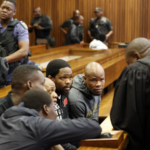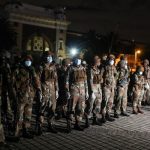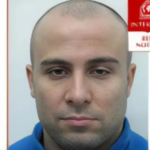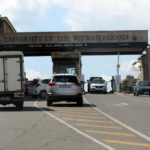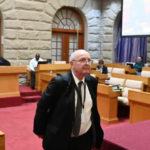Johannesburg – South Africa has bolstered its military presence in the Democratic Republic of Congo (DRC) with additional troops and equipment in recent days, following the deaths of 14 South African soldiers in clashes with Rwanda-backed M23 rebels last month.
The move comes amid growing fears that escalating conflict in eastern DRC could ignite a wider regional war, a region already scarred by genocide, cross-border conflicts, and numerous uprisings over the past three decades.
Political and diplomatic sources confirmed the reinforcement, while flight data reviewed by Reuters revealed transport aircraft flying from South Africa to Lubumbashi in southern DRC. An airport employee in Lubumbashi corroborated the reports, confirming that military planes had landed last week.
Chris Hattingh, the Democratic Alliance's (DA) defence spokesperson, stated, “We have been informed of an [South African National Defence Force (SANDF)] troop build-up in the area of Lubumbashi. We gather that about 700-800 soldiers had been flown to Lubumbashi."
Hattingh expressed concern over the lack of transparency surrounding the deployment, adding that it was “difficult to figure out what is unfolding” because Parliament’s defence committee had not been briefed.
While the SANDF spokesperson initially stated on Friday that he was unaware of the deployment to Lubumbashi, he declined to comment further on Monday. Similarly, a DRC army spokesperson said he could not confirm the deployment.
South Africa is believed to have around 3,000 troops already stationed in the DRC, participating in both a UN peacekeeping mission and a Southern African regional force tasked with assisting the Congolese army in combating the M23 insurgency.
The SANDF's intervention in the DRC has faced significant criticism at home, particularly after the fall of Goma left South African soldiers encircled and without a clear exit strategy.
Marais, now a defence analyst who claims to be well-informed about the situation, indicated that the flights to Lubumbashi were carrying essential supplies, including medicine, ammunition, and consumables. He suggested that the additional troops were intended to provide support in the event of further clashes and act as a deterrent as negotiations to resolve the conflict progress.
Flight tracking data from FlightRadar24 revealed that an IL-76 cargo plane, identified by tail number EX-76008, made five round-trip flights from Pretoria to Lubumbashi between January 30 and February 7. These flights originated from the south of Pretoria, where the SA Air Force maintains a base.
An employee at Lubumbashi airport confirmed to Reuters on Saturday that they had observed several rotations of aircraft transporting troops and equipment. Additionally, three diplomats and a minister from a country within the region acknowledged their awareness of the deployment.
The situation is further complicated by the fact that M23 rebels control Goma’s airport, effectively cutting off South African troops stationed there from resupply routes.
According to a defence expert, who preferred to remain anonymous, “The pattern of chartered cargo flights under SANDF call signs from SA to Lubumbashi and locations inside [neighbouring] Burundi points to the likely creation of some type of additional contingency force.”
The historical context of the region adds to the gravity of the situation. Two successive wars in the 1990s and 2000s, stemming from the Rwandan genocide, drew in numerous of Congo’s neighbours, resulting in millions of fatalities, primarily due to starvation and disease.
Uganda and Burundi, which already have thousands of troops deployed in eastern Congo, are also reportedly reinforcing their positions.

Follow Us on Twitter


